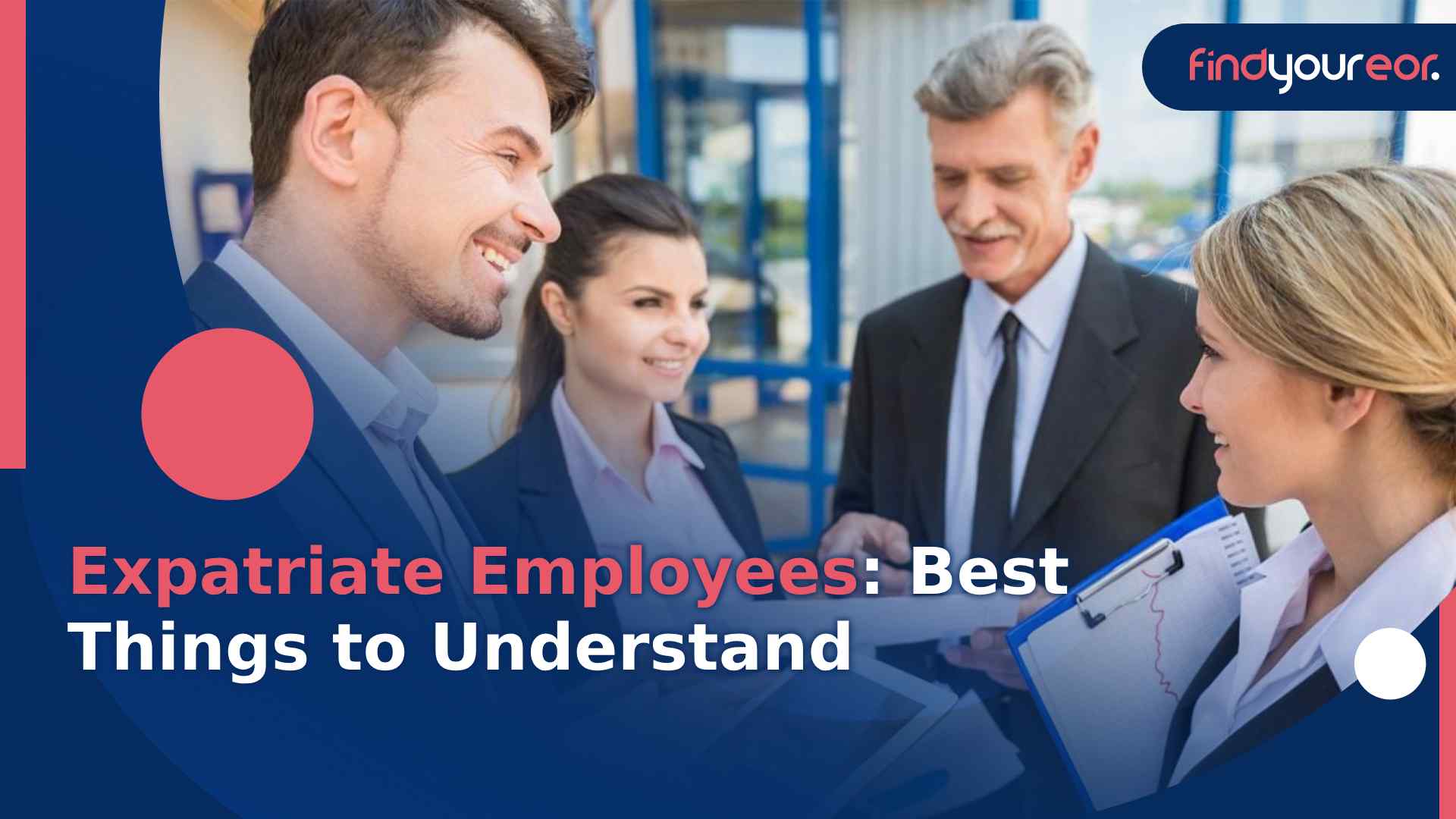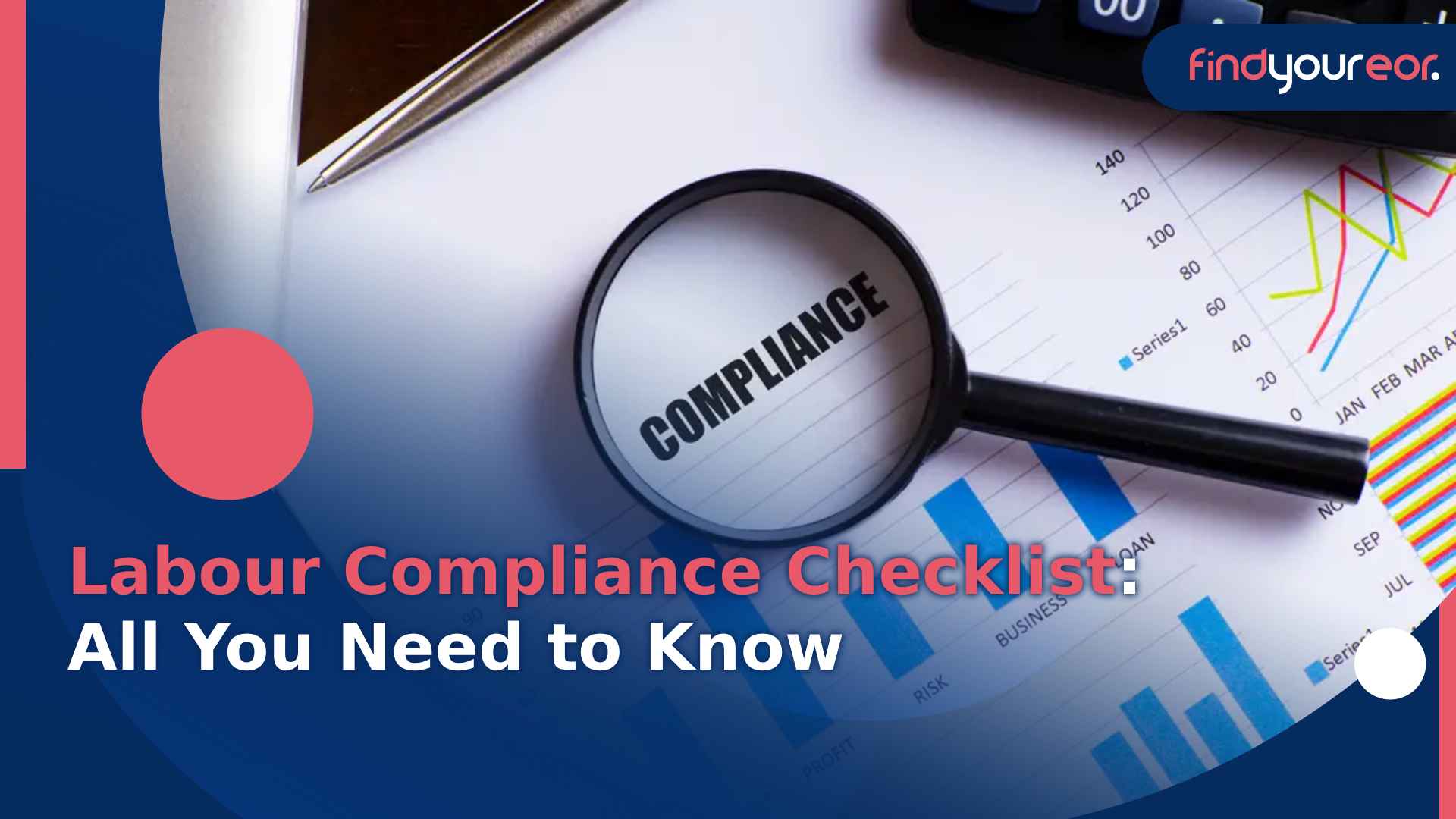Employer of Record Canada: Why You Need It & How to Use It
Last update: April 29th 2024
Canada's workforce is highly educated and versatile, thriving in sectors like technology, healthcare, finance, and natural resources. The country's inclusive, multicultural environment attracts global talent, enhancing innovation and collaboration. However, hiring Canadian professionals involves complex immigration and work permit processes, which are time-consuming and require strict compliance with local labor laws.
To simplify hiring, companies can partner with an Employer of Record (EOR) in Canada. An EOR handles all legal employment responsibilities, including payroll, benefits, tax compliance, and labor law adherence, freeing companies from administrative burdens and facilitating access to Canadian talent without the need to navigate complex regulations or establish a local entity.
How to Hire an Employer of Record Canada
Hiring an employer of record in Canada (EOR Canada) can streamline your hiring process, ensure compliance with local regulations, and help you navigate the Canadian labor market effectively. Here are five simple steps to guide you through the process:
1. Research EOR Providers in Canada
Start by researching EOR providers in Canada with experience in your industry and a strong reputation. Ideally, the providers should offer comprehensive services such as payroll processing, benefits administration, and compliance support. You’ll also want to check their approach to data security and intellectual property protection. To find a provider that aligns with your budget and needs, compare pricing plans. This ensures transparency and prevents unexpected costs.
2. Meet with Potential EOR Providers
Set up meetings with potential EOR Canada providers to discuss your specific needs and their services. This can be a perfect opportunity to ask questions about their experience and how they manage employee relationships. Here are some key questions you can ask:
- Do they have an entity in Canada?
- What onboarding services do they provide?
- How do they handle compliance with Canadian labor laws?
- How strict are their data security measures?
- Can they offer precise employer burden calculations?
These discussions will help you assess the provider's compatibility with your business and determine if they can meet your specific requirements.
3. Check for Global Coverage
An EOR provider with global coverage can offer numerous benefits, especially if you plan to expand beyond Canada. A provider with international experience can guide you through different labor laws across various regions. By having one EOR provider for all your international employees, you can streamline your operations and simplify communication.
4. Read Reviews and Contracts Carefully
Before making a final decision, take your time to read online reviews and opinions about the employer of record Canada providers. Try looking beyond their website for unbiased reviews. If possible, speak with current or past clients to gain insights into the provider's strengths and weaknesses.
Carefully review contracts and agreements with your chosen provider. When doing so, you’ll want to pay close attention to service levels, pricing, termination clauses, and additional fees. Make sure you understand the terms and ask for clarification on any ambiguities to prevent misunderstandings later.
5. Collaborate Closely with Your EOR Provider
Once you choose your employer of record Canada provider, establish a close working relationship with them. You can use their expertise and knowledge of the Canadian labor market to your advantage. Work together to design competitive compensation packages and allow for smooth employee transitions.
By cooperating with the EOR, you can make sure your international team feels comfortable and valued within your company. Open communication between you, your EOR Canada provider, and your employees is essential for a successful partnership.
What are the Benefits of Using Employer of Record Canada Services?
Employing an employer of record in Canada comes with many benefits for businesses looking to establish a presence or expand operations in Canada. Be it navigating local regulations or managing payroll and compliance, an EOR provides comprehensive support to streamline operations and drive business growth. Here are some of the key benefits of using EOR services in Canada:
Navigating Immigration Processes
Canada has complex immigration processes governing the entry and employment of foreign workers. Partnering with an EOR in Canada simplifies the immigration process by handling visa applications, work permits, and other immigration requirements on behalf of businesses. This ensures compliance with immigration regulations and facilitates the smooth entry of foreign talent into the Canadian market.
Access to Multicultural Talent
Canada is known for its diverse workforce, with professionals from various cultural backgrounds and skill sets. Partnering with an EOR in Canada gives businesses access to this diverse talent pool, allowing them to recruit and hire skilled professionals from different cultural backgrounds quickly and efficiently. EORs facilitate the recruitment process, handle employment contracts, and ensure compliance with labor laws, allowing businesses to build diverse and inclusive teams that drive innovation and creativity.
Market Expansion
Due to regulatory complexities and cultural differences, establishing a presence in Canada can be challenging for foreign businesses. Employing an EOR in Canada streamlines the expansion process, allowing businesses to enter the Canadian market quickly and efficiently. EORs provide local expertise, strategic guidance, and operational support so that companies can navigate the nuances of the Canadian business environment and establish a strong foothold in the market.
Compliance Assurance
Canada has strict employment laws and regulations governing various aspects of the employer-employee relationship, including minimum wage, working hours, and employment standards. Partnering with an EOR in Canada guarantees compliance with these regulations, minimizing business legal risks and liabilities. EORs have expertise in Canadian labor laws and employment regulations, enabling businesses to operate confidently and legally in the Canadian market.
Scalability and Flexibility
Using an employer of record in Canada offers scalability and flexibility for businesses looking to expand their operations or hire seasonal workers. EORs provide scalable solutions tailored to businesses' needs, allowing them to ramp up or downsize their workforce quickly and efficiently. This helps companies optimize their operational costs and adapt to changing market conditions, boosting their competitiveness in the Canadian market.
By using the services of an employer of record in Canada, businesses can get a strategic advantage in navigating the complexities of the Canadian market. From ensuring compliance and accessing multicultural talent to facilitating market expansion and scalability, EOR Canada services enable businesses to expand their operations in Canada with confidence and efficiency.
Hiring in Canada
Before hiring in Canada, it's important to understand the legal requirements and procedures involved. From setting up a legal business entity to obtaining necessary licenses and permits, there are certain steps businesses must follow to guarantee compliance with Canadian labor and employment laws.
Essential Steps for Hiring Employees in Canada
Hiring employees in Canada involves going through various legal and administrative procedures. Here's an overview of key steps to follow:
Set up a Legal Business Entity
Establishing a legal presence in Canada is essential for hiring employees. For overseas businesses, this often involves deciding between opening a subsidiary or a branch. While a subsidiary operates as a separate legal entity, a branch is more closely associated with its parent organization. The two choices depend on liability, taxation, and regulatory requirements.
Incorporate Your Business
Once the decision is made regarding the type of business entity, the next step is to incorporate the industry in Canada. Overseas businesses must register their company as an extra-provincial corporation in the Canadian province where they plan to operate. This process involves submitting necessary documentation and paying registration fees to the relevant provincial authorities.
Open a Payroll Deduction Account
Employers in Canada must withhold and remit various deductions from their employees' paychecks, including income tax, Canada Pension Plan (CPP) contributions, and Employment Insurance (EI) benefits. To do this, businesses must obtain a Business Number (BN) from the Canada Revenue Agency (CRA) and use it to open a payroll deduction account. This account allows employers to remit deductions accurately and on time to the CRA.
Obtain Workers' Compensation Insurance
Canadian labor laws mandate employers to provide workers' compensation insurance coverage to their employees. This insurance offers financial protection for workers in case of workplace injuries or illnesses. To obtain workers' compensation coverage, employers must register with the Workers' Compensation Board (WCB) in their respective province or territory. The WCB administers the program and manages claims filed by injured or ill workers.
Obtain Licenses and Permits
Depending on the nature of the business and industry, employers may need to obtain specialized licenses and permits from the Canadian government. These licenses and permits ensure compliance with regulatory requirements and allow companies to operate legally in Canada. Common examples include business licenses, permits for regulated industries (such as healthcare or construction), and permits for specific activities (such as selling alcohol or operating a restaurant). Businesses should carefully research and obtain all necessary licenses and permits to avoid potential legal issues and penalties.
Of course, instead of going through all these steps, you could choose an employer-of-record provider with an entity in Canada that can hire on your behalf.
Key Regulations in Canada
Navigating Canada's employment landscape requires a thorough understanding of the regulatory framework governing labor and employment matters. Here are some key regulations employers must be aware of when hiring staff in Canada:
Federal vs. Provincial Laws in Canada
- Dual jurisdiction: Both federal and provincial governments have jurisdiction over labor and employment matters.
- Varied conditions: Conditions of employment such as work hours, wages, leaves of absence, and termination vary between jurisdictions.
- Compliance: Establish fair, inclusive hiring policies that are compliant with federal and provincial laws to guarantee legal adherence.
Employee-Related Policies in Canada
- Policy requirements: Canadian law mandates that employers develop policies on occupational health and safety, harassment, anti-discrimination, and human rights.
- Policy scope: Policies may cover overtime work, attendance, standard work hours, and computer use.
- Comprehensive policies: Policies need to align with provincial requirements to foster a safe and respectful work environment.
Canadian Employment Contracts
- Legal compliance: Employment agreements and offer letters need to comply with Canadian federal and provincial laws.
- Termination regulations: Employees cannot be dismissed without due notice unless for cause, entitling dismissed employees to minimum statutory compensations.
- Protection: Adhering to termination regulations protects employers and employees from legal disputes.
Deductions and Remittances
- Income tax deductions: Employers must withhold the correct amount of income tax from employees' paychecks.
- Canada pension plan (CPP): Contributions are mandatory for employees earning over $3,500 per year, shared between employer and employee.
- Employment insurance (EI): Employers deduct and remit EI premiums until the employee reaches the maximum premium or earning limit.
Vacation Leave and Pay in Canada
- Federal law compliance: Canada's federal law governs Vacation entitlement and pay.
- Entitlement: Employees are entitled to vacation leave based on years of service, with corresponding vacation pay percentages.
- Calculation: Vacation pay is based on gross wages multiplied by a percentage determined by vacation entitlement.
Cultural and Linguistic Differences
- Work culture: Canadians may have different work habits, including more breaks, longer vacations, and fewer work hours than other cultures.
- Linguistic diversity: While English and French are national languages, linguistic differences may exist, especially in Quebec.
- Adaptation: Employers should embrace workplace bilingualism and accommodate cultural differences to foster inclusivity and productivity.
Payroll Taxes in Canada
Understanding Canada's mandatory payroll taxes and contributions is crucial for employers to ensure compliance with federal and provincial regulations. Here are the key aspects to keep in mind:
Federal Payroll Taxes and Contributions
- Pension fund: Depending on the province, employees and employers contribute to the Canada Pension Plan (CPP) or Quebec Pension Plan (QPP).
- Employment insurance (EI): Employers and employees make EI contributions to provide income support during unemployment or leave.
Provincial/Territorial Programs
- Healthcare: Employers contribute to provincial healthcare programs, with rates varying by jurisdiction.
- Workers' compensation: Employer-paid insurance provides medical treatment and income support for work-related injuries or illnesses.
Additional Considerations
- Vacation pay: Employers must calculate and accrue vacation pay based on provincial regulations, typically ranging from 4% to 10% of wages.
- Income taxes: Employers deduct and remit federal and provincial income taxes from employee earnings, with rates varying by income bracket and jurisdiction.
Addressing these payroll tax obligations allows for legal compliance and supports essential employee benefits, contributing to a fair and equitable workplace environment in Canada.
Consequences of Missteps
The consequences of failing to meet the minimum standards set out in Canada's Employment Standards Code tend to be severe for companies. Non-compliance can trigger enforcement actions, including investigations by Employment Standards authorities, administrative penalties, and potential prosecution. Moreover, repeated offenses can result in escalating penalties, posing significant risks to the company's reputation and financial stability.
To avoid these consequences, businesses can benefit from partnering with an employer-of-record Canada provider. Working with an EOR in Canada ensures that all employment standards are met, minimizing the risk of non-compliance and potential legal repercussions. By passing HR and compliance responsibilities to the employer of record in Canada, companies can focus on their core operations while maintaining peace of mind, knowing that their workforce management is capable.
Choose EOR Worldwide for Canada EOR Services
Ready to expand your business into Canada? Partner with EOR Worldwide, your trusted employer of record Canada partner, to simplify your international expansion journey. Our comprehensive EOR services guarantee compliance with Canadian regulations, efficient onboarding processes, and access to top talent in the Canadian market.
With our expertise and support, you can focus on growing your business while we handle the administrative complexities of hiring and managing employees in Canada. EOR Worldwide has got you covered with our nationwide network of partners and resources, whether you're looking to establish a presence in Toronto, Vancouver, or Montreal.
Let us be your strategic partner in unlocking opportunities and driving success in the Canadian market. Get started today and experience the benefits of partnering with a global leader in EOR services.



















